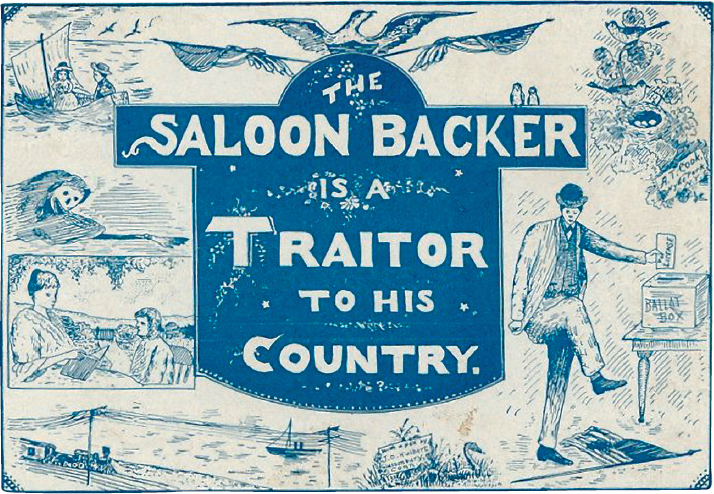Frances Willard and the Woman’s Christian Temperance Union.
Printed Page 545 Chapter Chronology
Frances Willard and the Woman’s Christian Temperance Union. A visionary leader, Frances Willard spoke for a group left almost entirely out of the U.S. electoral process. In 1890, only one state, Wyoming, allowed women to vote in national elections. But lack of the franchise did not mean that women were apolitical. The Woman's Christian Temperance Union demonstrated the breadth of women's political activity in the late nineteenth century.

Women supported the temperance movement because they felt particularly vulnerable to the effects of drunkenness. Dependent on men's wages, women and children suffered when money went for drink. The drunken, abusive husband epitomized the evils of a nation in which women remained second-class citizens. The WCTU, composed entirely of women, viewed all women's interests as essentially the same and therefore did not hesitate to use the singular woman to emphasize gender solidarity. Although mostly white and middle-class, WCTU members resolved to speak for their entire sex.
When Frances Willard became president in 1879, she radically changed the direction of the organization. Social action replaced prayer as women's answer to the threat of drunkenness. Viewing alcoholism as a disease rather than a sin and poverty as a cause rather than a result of drink, the WCTU became involved in labor issues, joining with the Knights of Labor to press for better working conditions for women workers. Describing workers in a textile mill, a WCTU member wrote in the organization's Union Signal magazine, "It is dreadful to see these girls, stripped almost to the skin ...and running like racehorses from the beginning to the end of the day." She concluded, "The hard slavish work is drawing the girls into the saloon."
Willard capitalized on the cult of domesticity as a shrewd political tactic. Using "home protection" as her watchword, she argued as early as 1884 that women needed the vote to protect home and family. By the 1890s, the WCTU's grassroots network of local unions included 200,000 dues-paying members and had spread to all but the most isolated rural areas of the country.
Willard worked to create a broad reform coalition in the 1890s, embracing the Knights of Labor, the People's Party, and the Prohibition Party. Until her death in 1898, she led, if not a woman's rights movement, then the first organized mass movement of women united around a women's issue. By 1900, thanks largely to the WCTU, women could claim a generation of experience in political action — speaking, lobbying, organizing, drafting legislation, and running private charitable institutions. As Willard observed, "All this work has tended more toward the liberation of women than it has toward the extinction of the saloon."